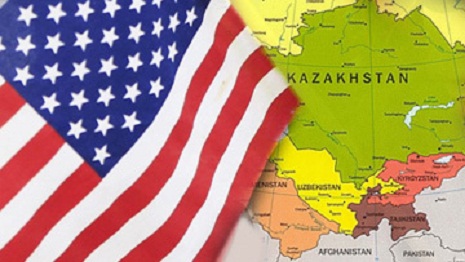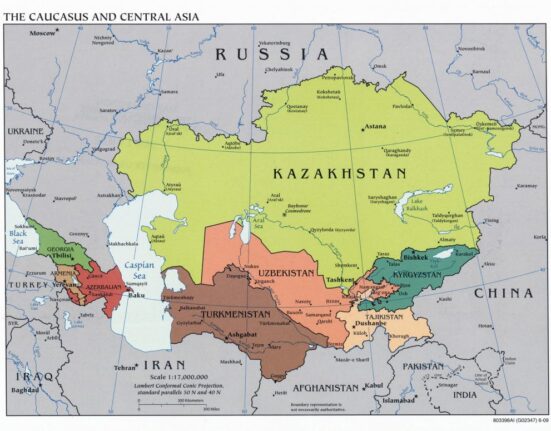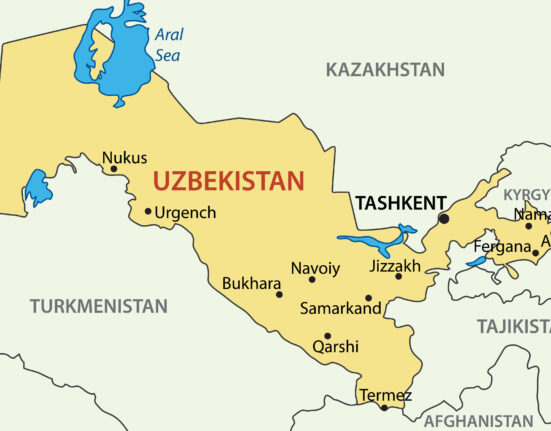In 2024, the United States of America welcomed 72.39 million tourists, ranking third in the world for attendance. This data is cited in the article “Top 10 Most Visited Countries in the World in 2024” on the Welcome Times website. However, there is no precise information available about the number of tourists from Central Asian countries (Kazakhstan, Kyrgyzstan, Tajikistan, Turkmenistan, Uzbekistan).
At the same time, U.S. Department of State statistics indicate that the refusal rate remains noticeable for residents of Central Asian countries. This trend highlights a pressing need to understand what factors consular officers actually take into account during the application process. To shed light on this, we contacted the U.S. Embassy in Dushanbe for clarification.
Confirming or Challenging Common Beliefs
The public often speculates that “human factors” — even an officer’s mood — might determine the outcome. To clarify, we asked the embassy directly.
– Based on your experience, how much does the human factor influence a consular officer’s decision? (Some believe that even the officer’s mood can affect the decision.)
– Whenever someone applies for a U.S. visa, a consular officer reviews the facts of the case and determines whether the applicant is eligible for that visa based on U.S. law. All visa applications are adjudicated on a case-by-case basis. Every visa case is unique and interview questions are tailored to the circumstances of each applicant. Consular officers use a variety of sources, including information provided in the application, information gathered from partners, and information provided during the interview, in interviews with applicants.
– The answer makes one thing clear: in the end, facts prevail over feelings. Consistency of documents, honesty in answers, and transparency weigh far more than chance or mood. Do consulates monitor applicants’ public online activity, including social media?
– Consular officers conduct comprehensive and thorough vetting, including of an applicant’s online presence, of all student and exchange visitor applicants in the F, M, and J nonimmigrant classifications. All student and exchange visitor visa applicants (F, M, and J visa classes) are requested to adjust the privacy settings on all of their social media profiles to “public” to facilitate vetting necessary to establish their admissibility to the United States. Since 2019, visa applicants have been required to list all social media usernames or handles of every platform they have used from the last 5 years on the DS-160 visa application form. Applicants certify that the information in their visa application is true and correct before they sign and submit. Omitting social media information could lead to visa denial and ineligibility for future visas.
– Can a previous visa refusal affect future applications?
– A previous visa refusal does not automatically disqualify an applicant from obtaining a visa in the future. However, the reasons for the refusal may be considered during subsequent applications. Applicants are encouraged to address any issues that led to the previous refusal and provide additional evidence to demonstrate their eligibility for a visa. The Department of State will continue to make clear there will be zero tolerance for aliens in the United States who violate U.S. laws or threaten public safety.
Recommendations from a Visa Expert
– When it comes to tourist visas, which 3–5 documents, in your experience, truly help convince the consular officer of the applicant’s genuine intentions?
– While each case is unique, the following documents may help demonstrate an applicant’s eligibility:
a. Proof of strong ties to their home country, such as employment verification, property ownership, or family relationships.
b. A detailed travel itinerary, including plans for accommodation and activities in the United States.
c. Financial documents, such as bank statements, showing sufficient funds to cover the trip.
d. Evidence of previous international travel, if applicable, to demonstrate compliance with visa requirements in the past.
– If an applicant plans to spend two weeks in the U.S. on a tourist visa, what level of income or bank balance is considered sufficient to improve their chances of approval?
– Applicants must demonstrate that they have sufficient funds to cover their travel expenses, including accommodation, transportation, and daily costs, without relying on unauthorized employment or public assistance in the United States. The consular officer will assess the applicant’s financial situation in the context of their overall application.
– What is the single most important piece of advice you would give to someone preparing to apply for a U.S. visa?
– The most important advice is to be truthful and transparent throughout the application process. Provide accurate information, prepare all required documents, and be ready to explain the purpose of your trip and your ties to your home country during the interview. In every case, we will take the time necessary to ensure an applicant does not pose a risk to the safety and security of the United States and that he or she has credibly established his or her eligibility for the visa sought, including that the applicant intends to engage in activities consistent with the terms of admission. To maximize the chances of being found eligible for a visa in time for travel, applicants should apply as early as possible.
Final Thoughts
The U.S. visa process may appear complex, but the guiding principles are clear: truthfulness, consistency, and preparation. While each case is unique, applicants who can demonstrate strong ties to their home country, provide realistic travel plans, and maintain transparency stand a much better chance of success.
by Shoira Toirova




